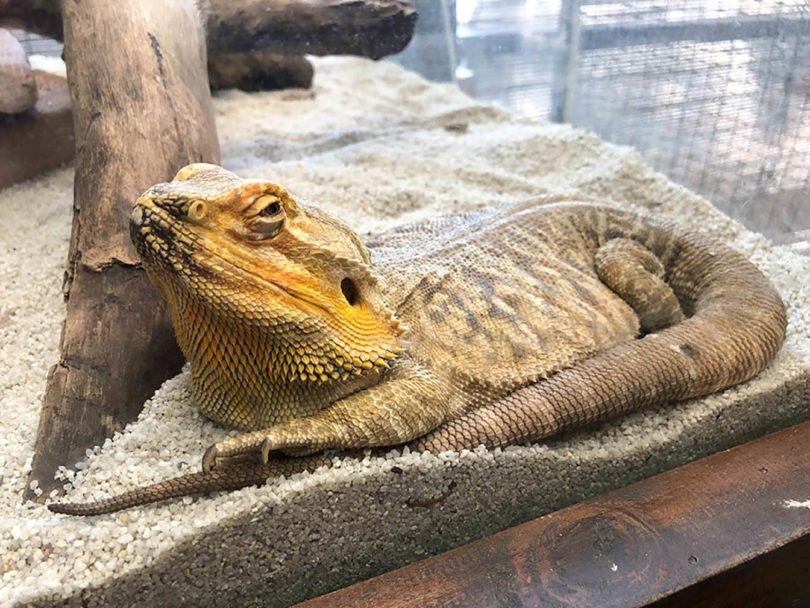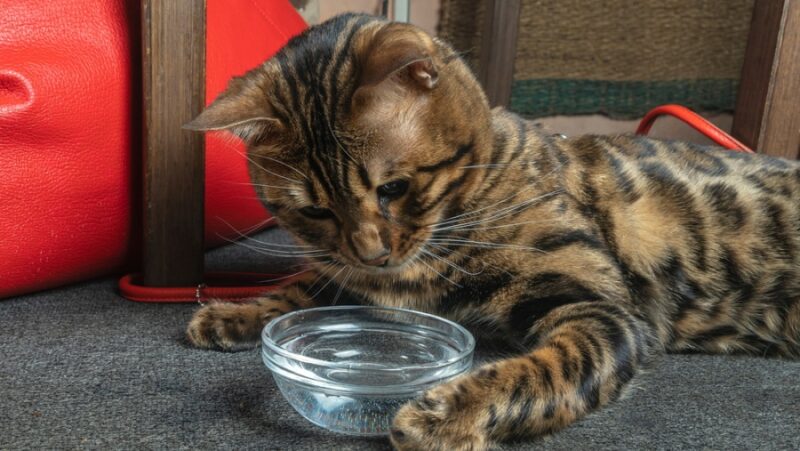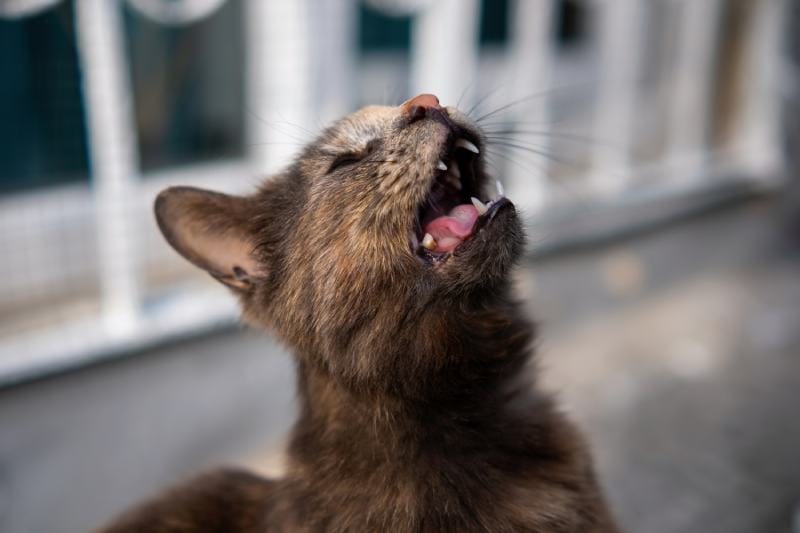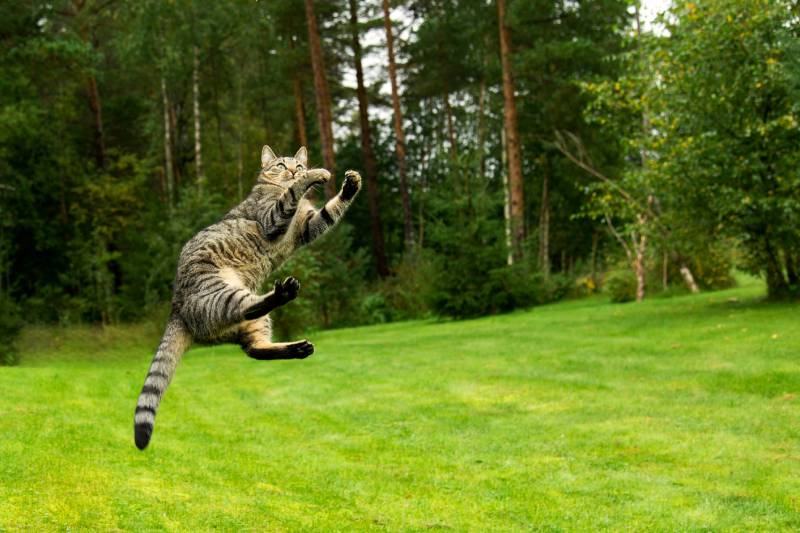VET APPROVED

The information is current and up-to-date in accordance with the latest veterinarian research.
Learn more »Click to Skip Ahead
The bearded dragon is a very popular pet. They look almost prehistoric, have a name that elicits visions of fire-breathing monsters from folklore, and have some unique and quirky habits ranging from head bobbing to slow waves. With such an unusual and exotic pet, it can be difficult to determine what is a natural behavior and whether any of the actions of your little beardie mean that they are stressed, ill, or in distress. One such activity is digging.
Digging can seem like a natural thing for a reptile to do, but is it? Does it mean that your beardie is missing something or is ill? Below, we look at six reasons why your bearded dragon is digging, whether it’s a cause for concern, and what action you can take to help remedy the situation.

The 5 Reasons for Bearded Dragons Digging
Here are the reasons your beardie could have started digging:
1. She’s Getting Ready to Lay
If your bearded dragon is an adult and female, she could be getting ready to lay eggs. Even if your female beardie has had no contact with a male, she can lay unfertilized eggs. Once the laying season starts (often after a winter brumation), she will want to find somewhere safe and warm for her eggs.
If this is the case, you can put down a lay box in the middle of the tank. All gravid bearded dragons should be seen by a veterinarian to ensure that they aren’t egg bound, which can be very dangerous for them.
Do Bearded Dragons Need a Dig Box?
Not all bearded dragon tanks have a dig box area, but because your beardie would enjoy digging in the wild, you may want to include one in your terrarium. If you have a female, then you should provide a lay box or dig box so that she has somewhere to safely lay her eggs and prevent her from becoming egg bound.
2. Temperature Management
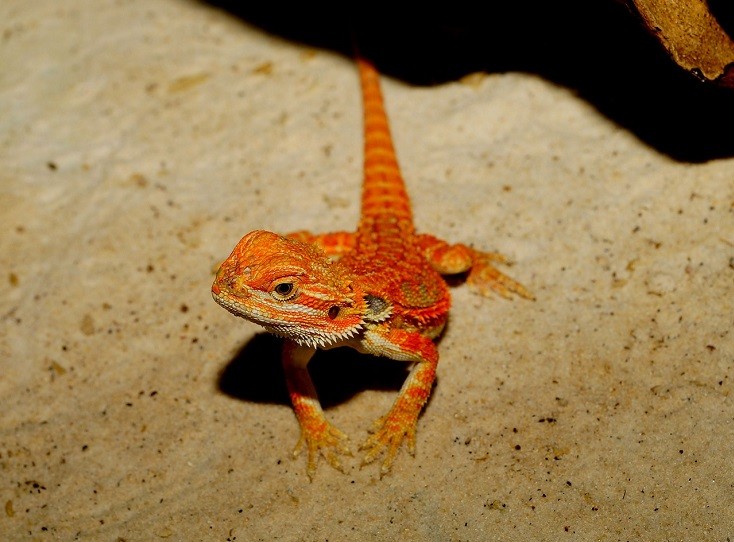
There are many ways that you need to care for a bearded dragon, and providing the right temperature in a terrarium is one such way. The recommended ambient temperature in a bearded dragon’s enclosure is anywhere between 77–89.6 oF (25–32 oC). Their basking spot should be at around 9oF (5oC) higher than the ambient air temperature in the rest of their enclosure. Likewise, they should have a “cool” or nighttime temperature which is approximately 9oF (5oC) lower than the ambient air temperature of their enclosure.
If your bearded dragon ever feels too warm, they may begin digging. Burrows are often cooler than the surface above, and therefore, it’s only natural for a bearded dragon to dig around when they are feeling too warm.
3. It’s an Idiosyncrasy
Sometimes, there’s no specific reason why your bearded dragon enjoys digging. They may simply be doing it for entertainment or for other reasons that aren’t serious or those which may necessitate intervention. This is often the case for unexplained digging in the substrate; however, when your bearded dragon is seemingly digging the walls of their terrarium, it may warrant intervention.
4. Stress (Glass Surfing)
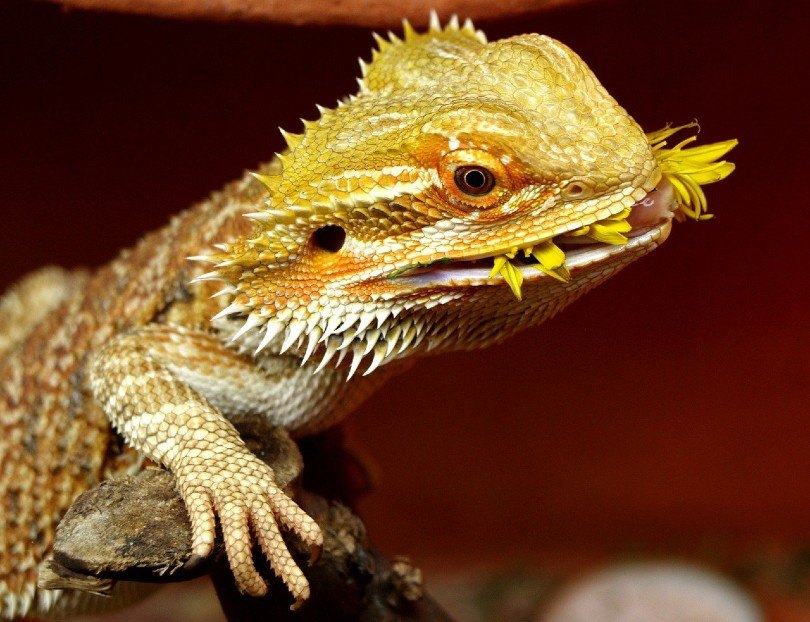
A bearded dragon that is stressed may sometimes appear to be digging the glass of their terrarium (vertically). This is also known as glass surfacing. Contrary to digging in substrate, this is considered to be problematic behavior, which definitely warrants a closer look (from an experienced veterinarian).
The list of reasons which may cause glass surfing are very broad and can range from nutritional issues to an enclosure that is too small.
5. Preparing to Brumate
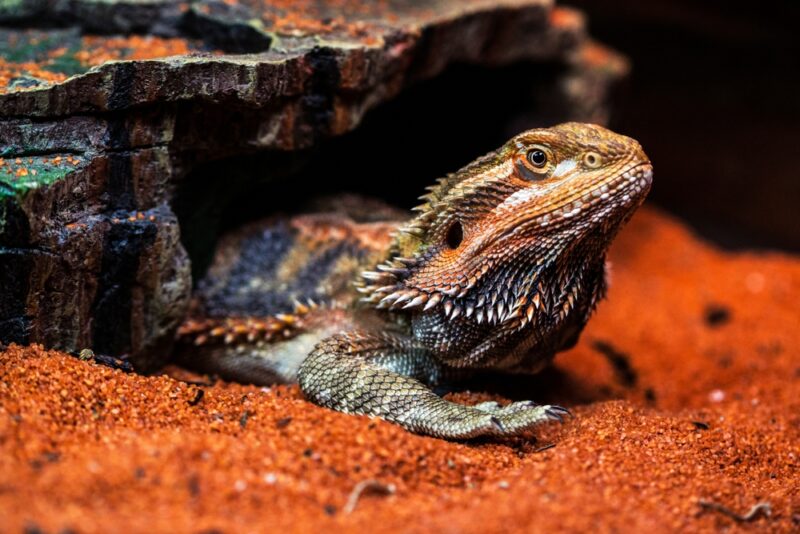
“Brumation” is a term which is best defined as the cold-blooded animal’s equivalent of hibernation. There is no reason to force a pet bearded dragon to brumate. In fact, trying to get your pet to brumate without getting a clear bill of health from your veterinarian can be very dangerous for your pet.
However, some experienced pet keepers like to encourage brumation to trigger a breeding cycle in bearded dragons. In other scenarios, bearded dragons housed in geographically cold locations may attempt to brumate (a less-than-ideal scenario).
Your pet may attempt to dig around prior to brumation. For more information about whether or not your pet would be a suitable candidate for brumation, it’s best to seek more information from your veterinarian.
- Related Read: Reptile Brumation & Dormancy: What You Need to Know

What Is Digging?
Bearded dragon digging is exactly as it sounds. They will scratch at the substrate and bedding to try and get underneath. The activity may occur during the day, or you may only hear it at night. It could be an occasional issue or an ongoing problem.
Do Beardies Like Digging?
In the wild, bearded dragons are natural diggers. They will dig out tunnels and caves in which to hide, and they can dig under the surface of sand and other substrates to hunt for insects and other natural meals. As pets, they may enjoy digging, too, but if your reptile is digging too often, has suddenly taken to digging, or is causing themselves physical harm while digging, then it could be a sign of something negative and that you need to take action on quickly.


Conclusion
Digging is a natural activity for bearded dragons. In most instances, the reasons why they dig are easily understood. However, at times, it may be a unique idiosyncratic behavior that you may not be able to understand easily.
Above all, it’s best to keep in mind that, when in doubt, you should definitely consider talking to your veterinarian for more clarification and information about your pet’s well-being.
Featured Image Credit: Kevin Khoo, Shutterstock
